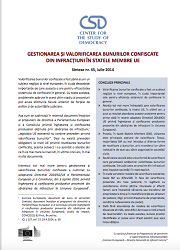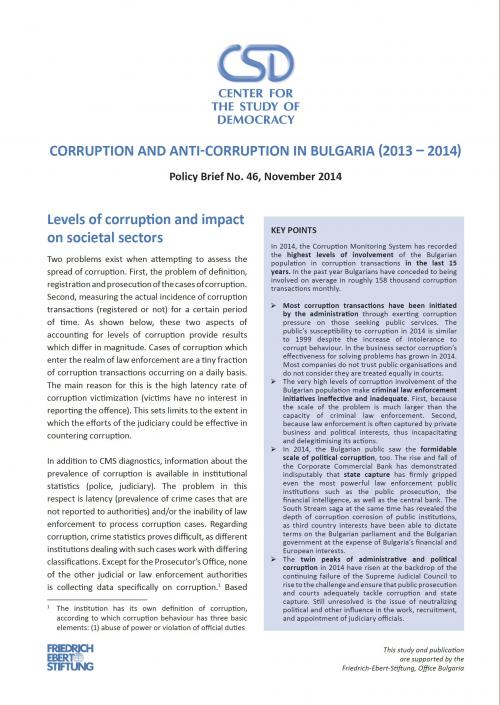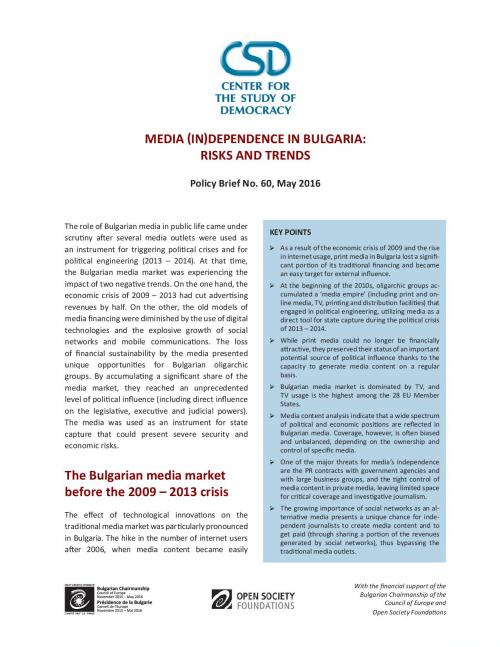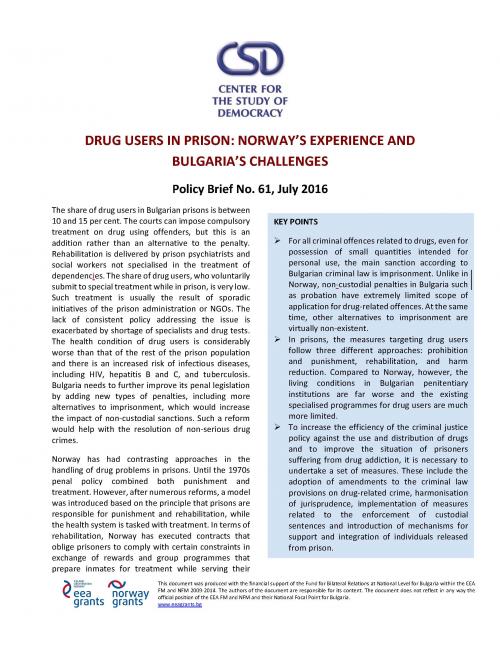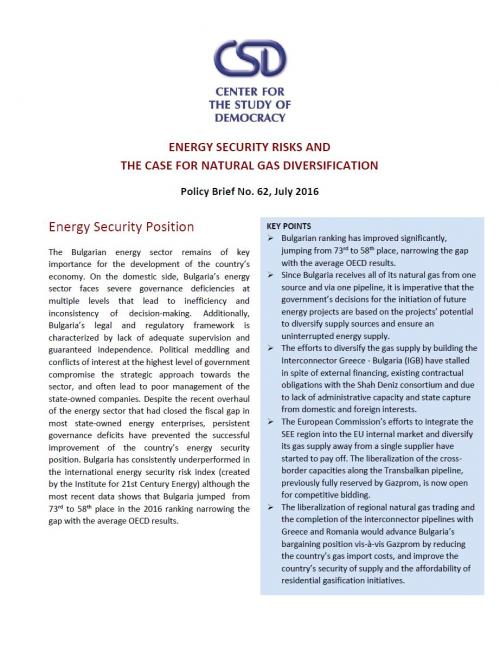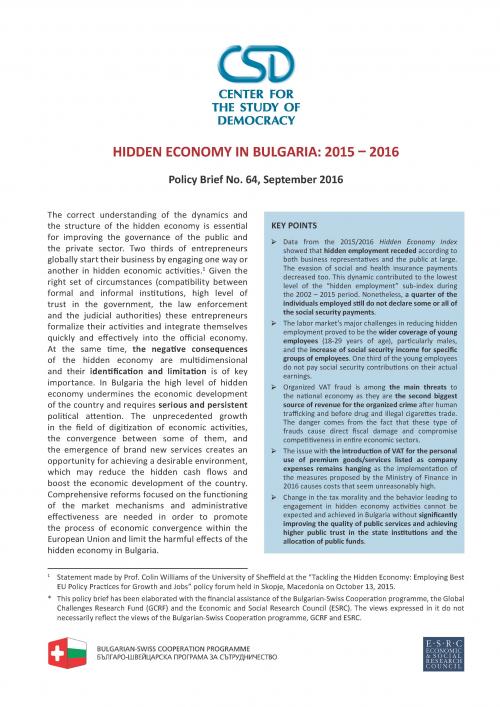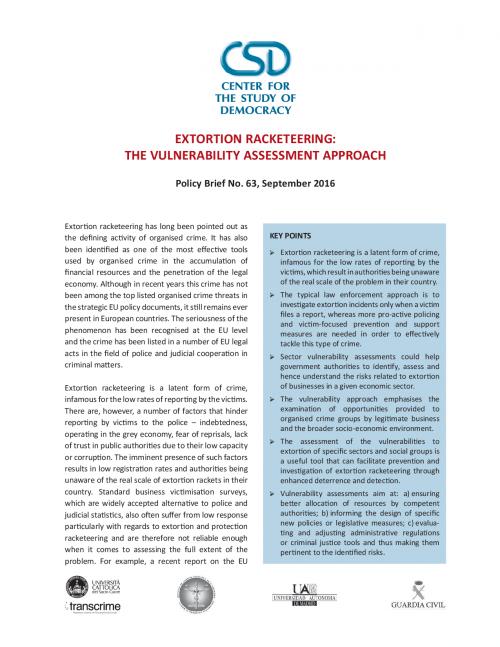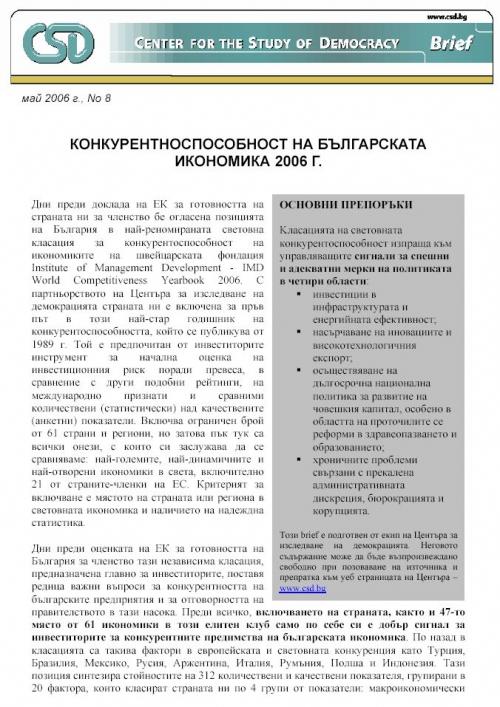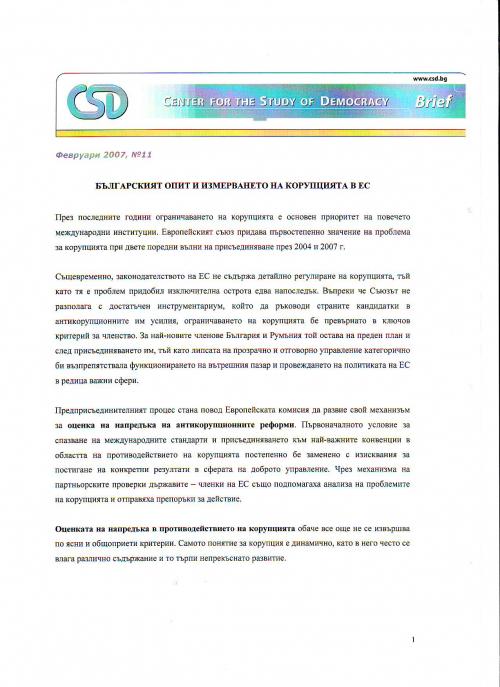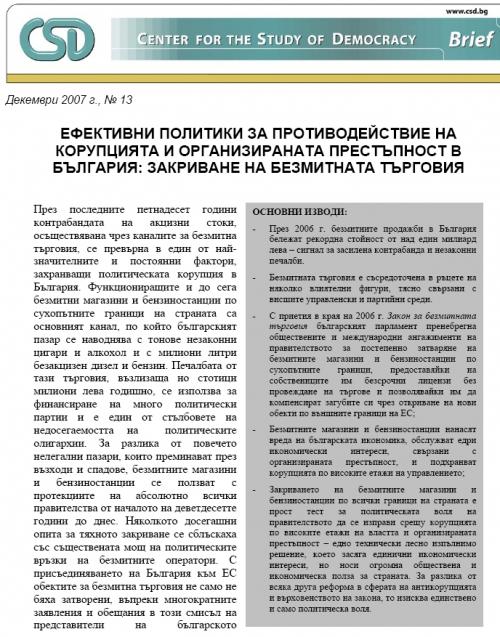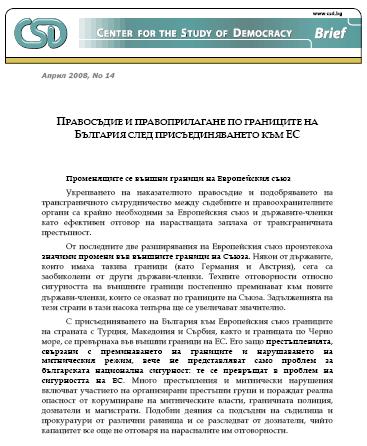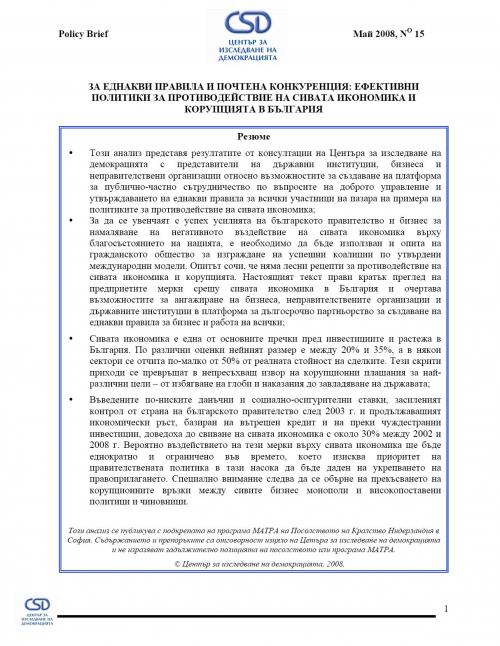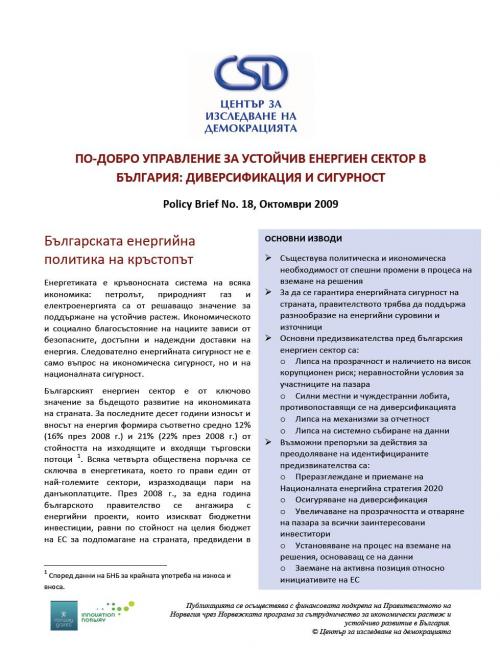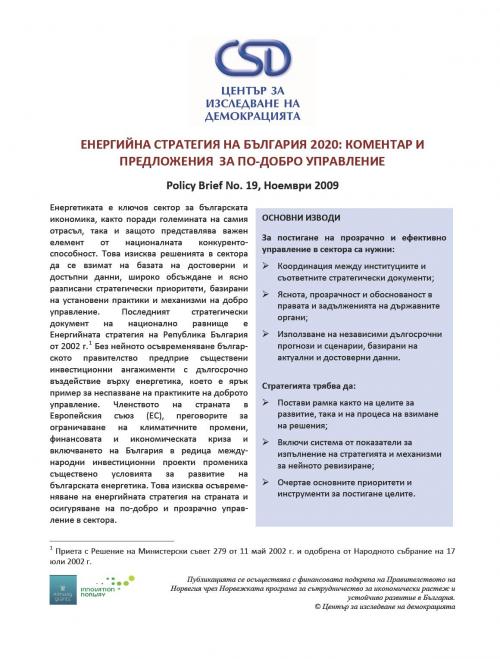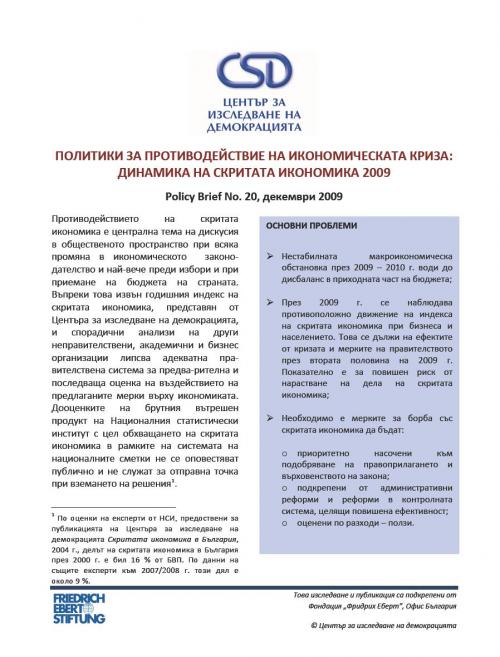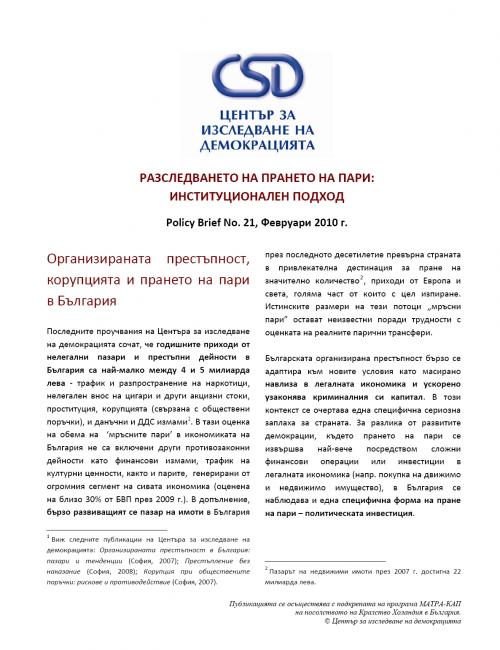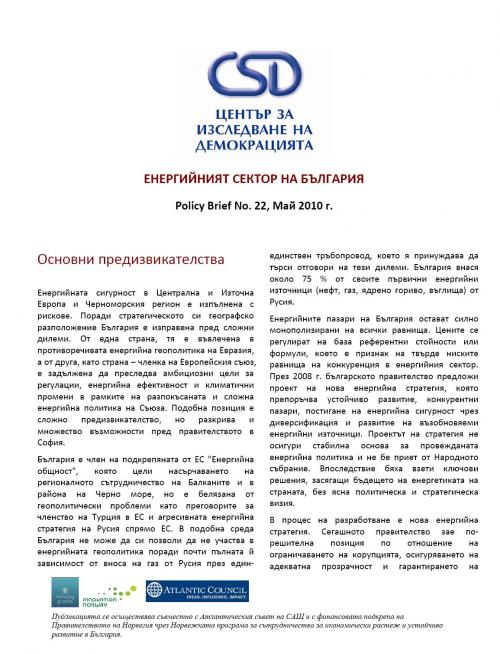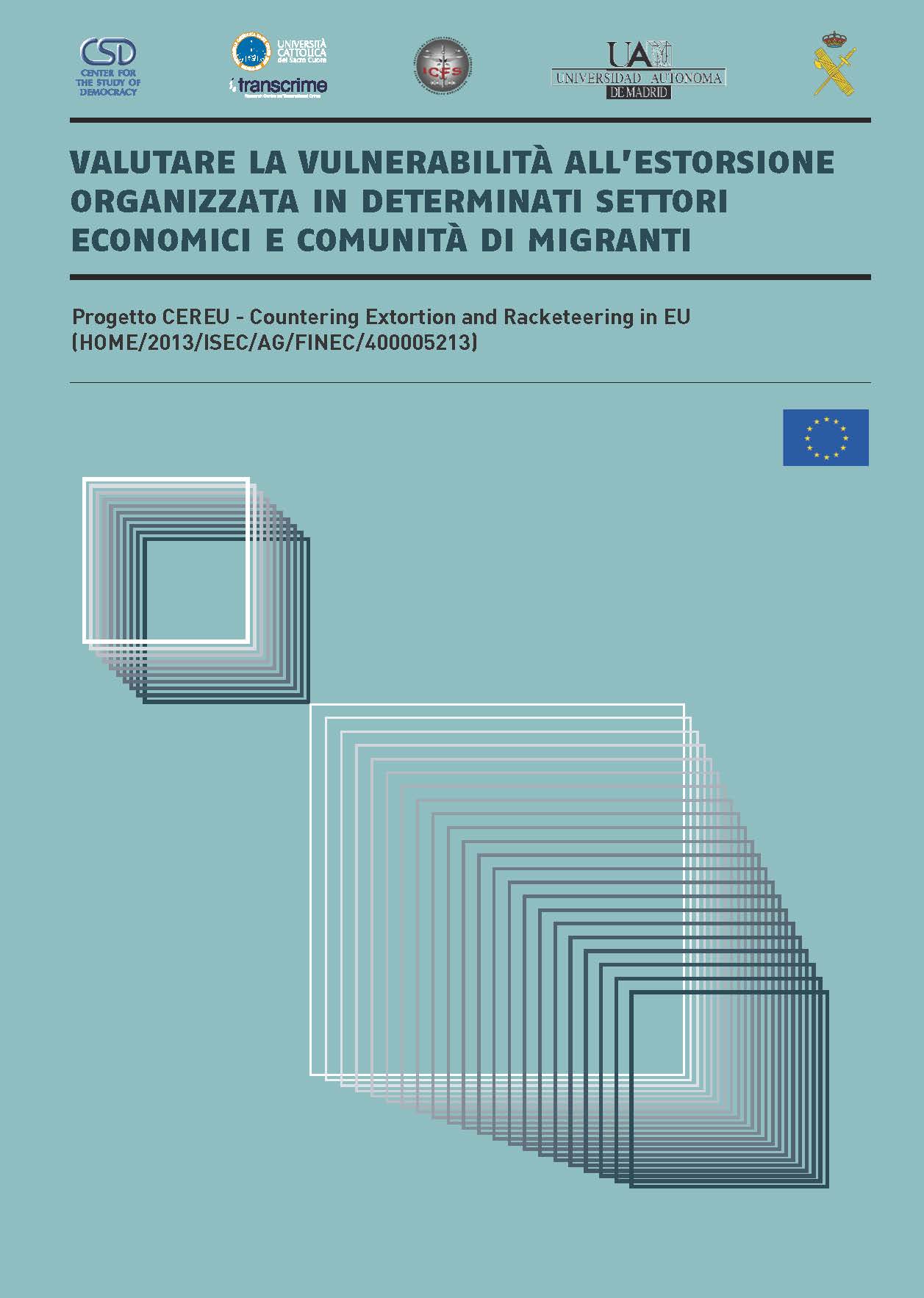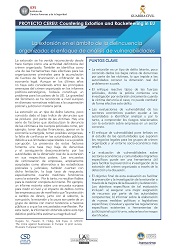
CSD Policy Brief No. 44: The Competitiveness of the Bulgarian Economy 2014
CSD Policy Brief No. 44: The Competitiveness of the Bulgarian Economy 2014
KEY POINTS ›› Bulgaria ranks 56th in the World Competitiveness Yearbook 2014 – a stagnation for a fifth year. ›› Bulgaria’s economy is reliant on exports, offers low living costs, and stable public finances. Its competitiveness remains narrow-based and unstable. ›› The labor market crisis caused by the financial downturn seems to have abated but unemployment remains worryingly high. ›› The economy is still suffering as a result of the inadequate business environment and the lack of a strong institutional framework, which could foster research, development and innovation activities, as well as adapt the educational system to the needs of the labor market. ›› The 5 main challenges which Bulgaria faces in improving its competitiveness are: ›› ›› Introduce public administration reforms, and more and better e-government services; ›› ›› Initiate performance-based financing of education; ›› ›› Reduce energy security risks through energy efficiency and diversification of supply sources and technologies; ›› ›› Improve regulatory control and compliance quality; ›› ›› Tackle high-level corruption and market capture.
More...
